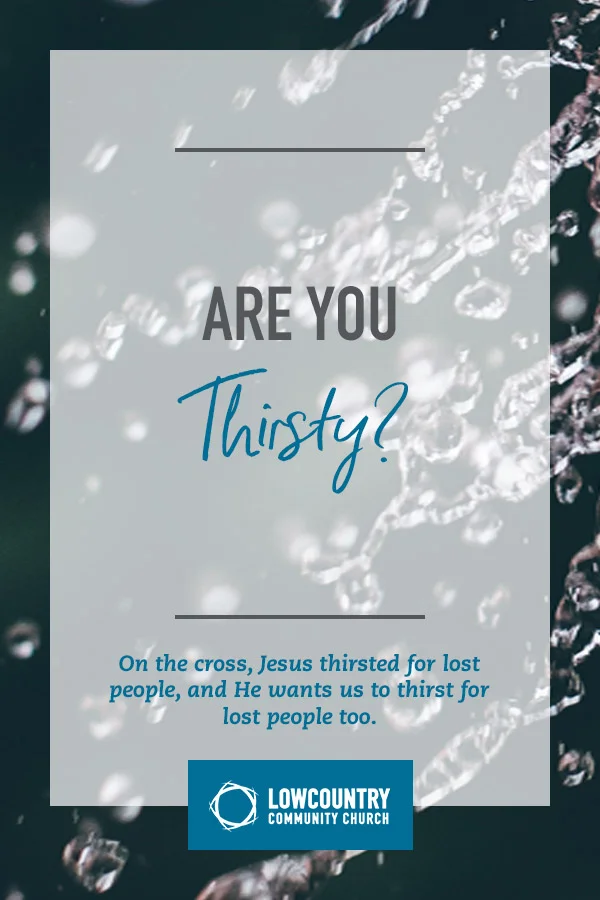Are You Thirsty?
By Jeff Cranston
After this, Jesus, knowing that all things had already been accomplished, to fulfill the Scripture, said, “I am thirsty.” A jar full of sour wine was standing there; so they put a sponge full of the sour wine upon a branch of hyssop and brought it up to His mouth.
– John 19:28-29
Jesus was in His final hours as He hung on the cross. The soldiers raised Him up at 9:00 that morning. At noon, three hours of thick darkness began, and at 3:00, the darkness was coming to an end. Then Jesus said, “I am thirsty.”
Why did Jesus say that? How should we respond to Jesus’ words? What effect should they have on us? Notice something: When Jesus said, “I am thirsty,” it was not a request, but a statement of condition. He did not ask for a drink. He stated how He felt.
There are two important lessons found in Jesus’ words today:
1. He thirsted so we might never thirst.
Thank God that Jesus thirsted. Had He not thirsted, every one of us would have thirsted forever in hell. He who caused water to flow from the rock in the wilderness, He who turned water into wine, and He who made the seas and the rain, could have easily spoken the word and quenched His thirst. But Jesus never performed a miracle for His own comfort. He thirsted so we might never thirst! Jesus said earlier in John’s gospel: If anyone is thirsty, let him come to Me and drink (John 7:37, NASB).
2. In a sense, He still thirsts.
I think there was also a symbolic meaning involved in Jesus’ words, “I am thirsty.” Yes, He thirsted due to the physical and spiritual pain. But I think His words also indicate a thirst for something else. There on the cross, He thirsted for the lives of thirsty men and women. He thirsted for the lost. He longed to restore a broken, sin-cursed world to His Father.
In that sense, Jesus still thirsts. He thirsts for the souls of men and women. Do you recall what Jesus said to the lukewarm church-members at Laodicea? He said, Behold, I stand at the door and knock; if anyone hears My voice and opens the door, I will come in to him and will dine with him, and he with Me (Revelation 3:20, NASB).
Do you know what is truly tragic? After all Jesus endured to quench our thirst, we ignore Him and try to satisfy our thirst with other things. Jesus knows and sees our brokenness. He knows us. He loves us. He suffered for us. He thirsts for lost people. And, He wants us to thirst for lost people, too.


